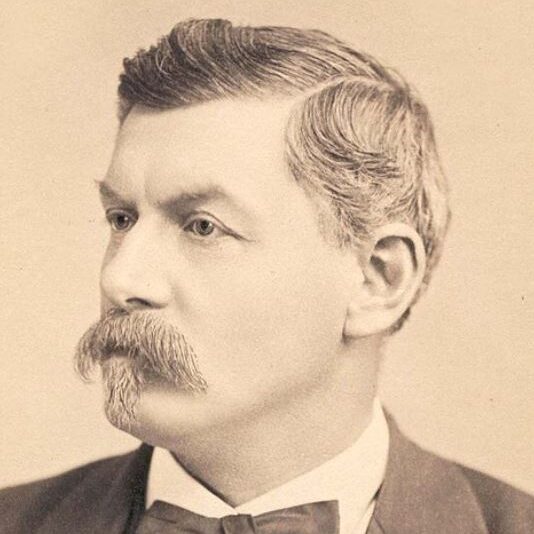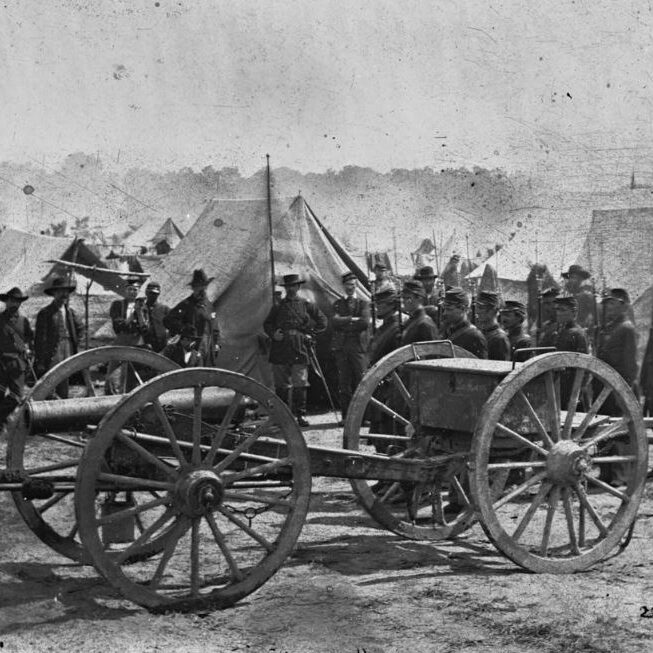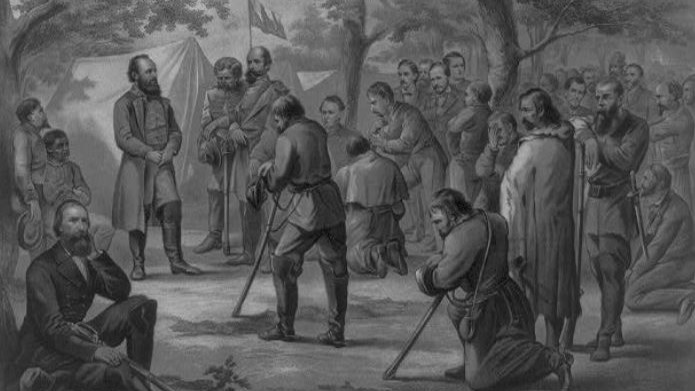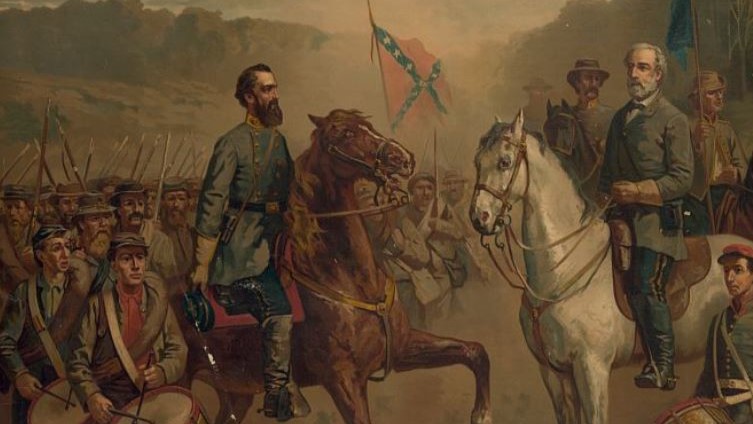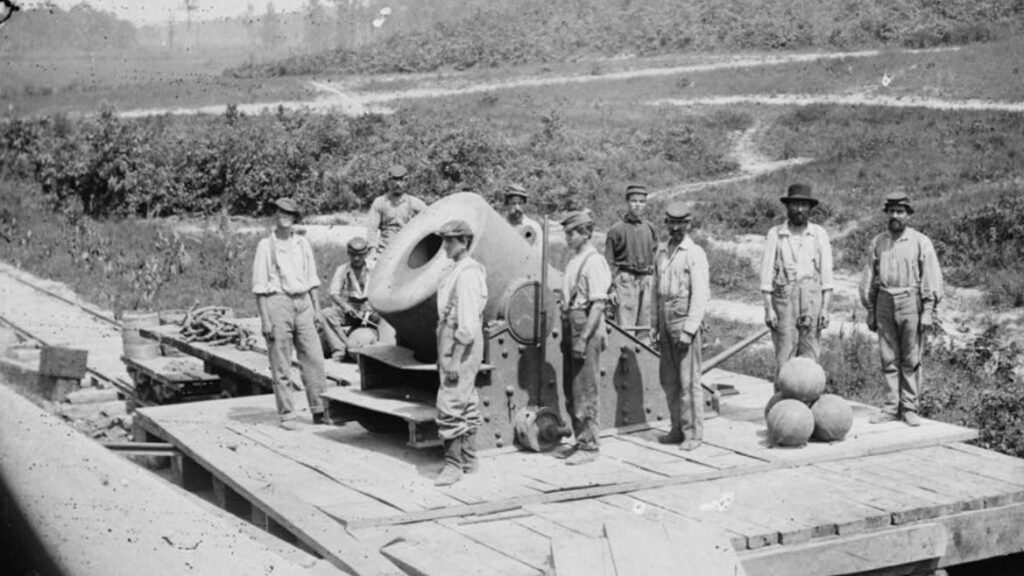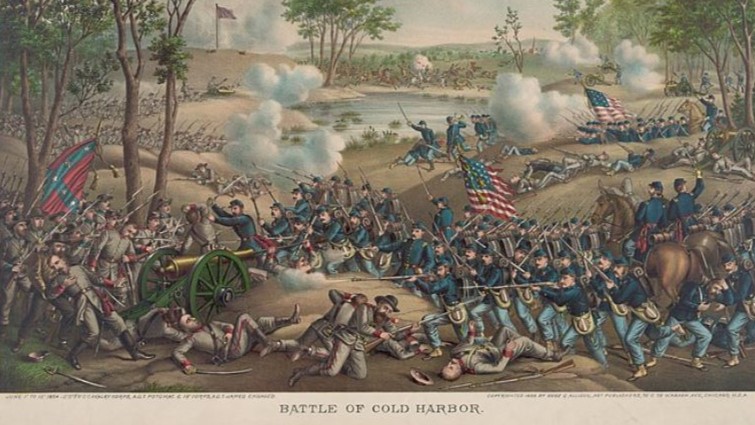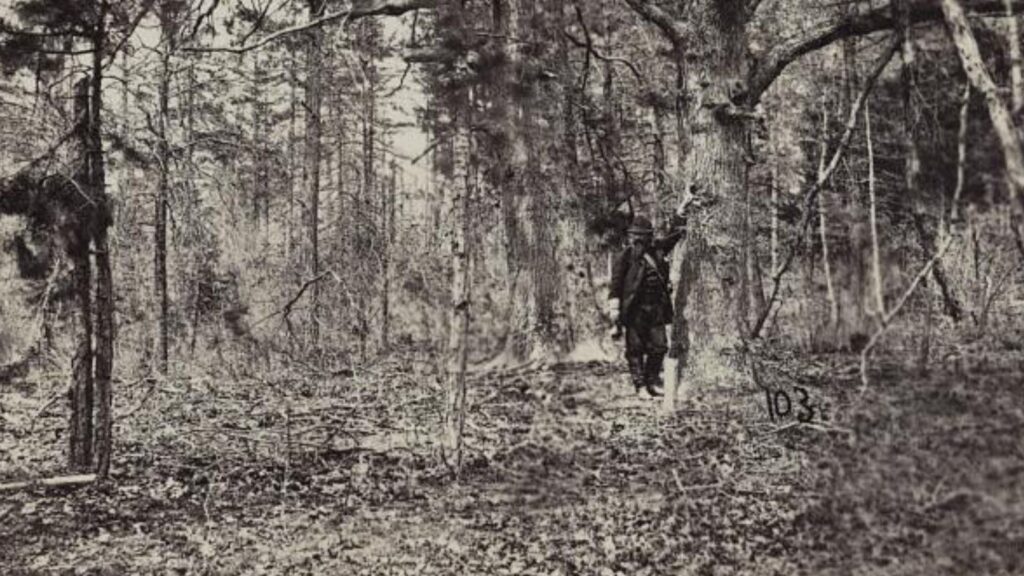After the Civil War, the former Union General, George McClellan, embarked on a diverse post-war career.
In this article, we explore the path taken by George McClellan to maintain relevant. Following his military career, McClellan delved into politics, ran for the presidency, and even served as governor of New Jersey.
1. George McClellan – The Controversial Commander
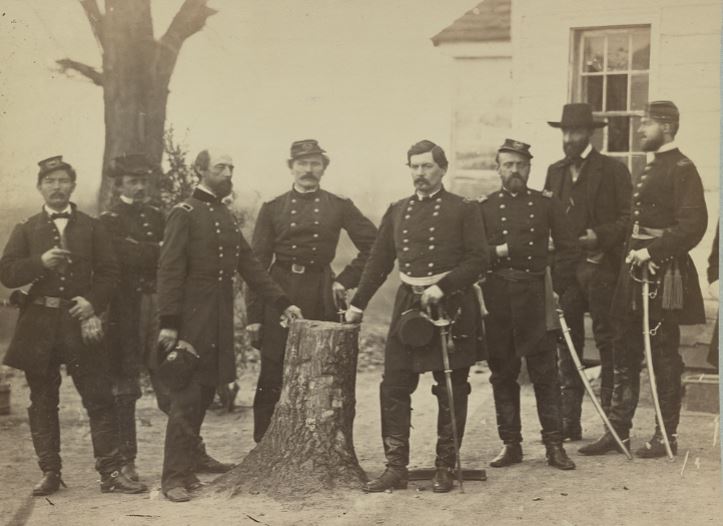
George McClellan was an important and controversial military leader in the Civil War.
McClellan led the powerful Army of the Potomac.
He was skilled at organizing troops. After the Battle of Bull Run defeat, George McClellan rebuilt the shattered Union forces. He made them a strong fighting force, with early success in the western Virginia campaign.
His troops were fiercely loyal to him and affectionately called him “Little Mac”.
McClellan’s time leading had ups and downs. He sometimes showed moments of brilliance.
However, McClellan was very cautious, which led to missed opportunities on the battlefield. This led to conflicts with President Lincoln and the administration. Because of this, he was abruptly dismissed from command in November 1862.
George McClellan remained popular in his post-war years with many veterans who served under him. He often received visits and expressions of appreciation from former soldiers throughout his retirement.
2. George McClellan – The Presidential Candidate
George McClellan entered presidential politics in 1864 after leaving the military, but with the ear still raging.
He accepted the Democratic nomination. His campaign was anti-war and he advocated for a negotiated peace settlement. This put him at odds with Lincoln, who was resolute on defeating the Confederacy militarily.
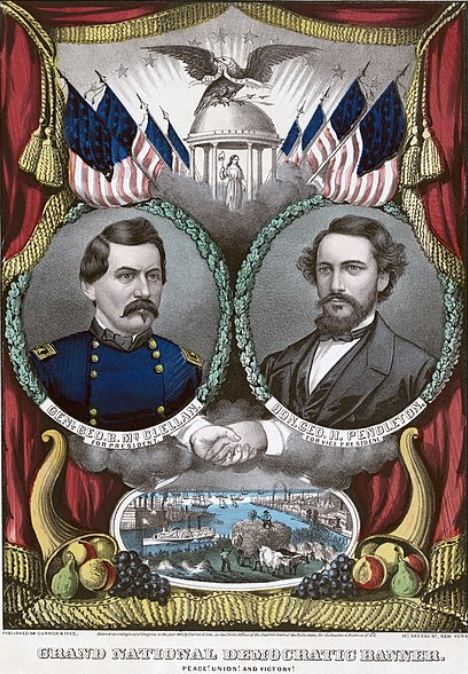
McClellan’s candidacy appealed to many anti-war Democrats. But he only won 21 states in the electoral college, although 45% of the public ballots cast nationwide. However, Lincoln won re-election comfortably.
George McClellan lost his home state of New Jersey and failed to capture any states in New England. His perceived pro-peace platform hurt him. Many voters wanted total victory after years of war.
His peace stance forever tarred McClellan’s reputation among Republicans. They branded him a defeatist unwilling to fight on.
There was speculation he might run again in 1868. But McClellan ruled out another campaign. He focused on business opportunities instead. The presidential run in 1864 proved a political swan song.
3. McClellan’s Industrial Pursuits
After his military career came to an end, he transitioned his talents to business.
George McClellan leveraged his engineering background and leadership experience to secure positions with several prominent companies. McClellan’s reputation attracted the attention of the Atlantic and Great Western Railroad, a struggling line aiming to connect the East Coast with the Midwest. McClellan’s leadership helped stabilize the company, though financial difficulties ultimately led to its demise.
Despite this setback, McClellan remained active in the railroad industry. He consulted for various companies, offering his strategic vision and engineering knowledge.
4. Governor of New Jersey
In 1877, McClellan’s path changed again. He was elected Governor of New Jersey as a Democrat.
As governor for one term, he focused on reforms. These included education, industrial development, and the judiciary system.
The state’s pottery industry especially benefited. McClellan worked hands-on to modernize manufacturing processes and quality.
However, McClellan did not stay in public office long. He did not run for re-election after his term ended in 1881 and permanently left the political arena.
It seemed he was disappointed by partisan forces he faced. It was time for a more private, intellectual life.
5. George McClellan – Life as a Scholar
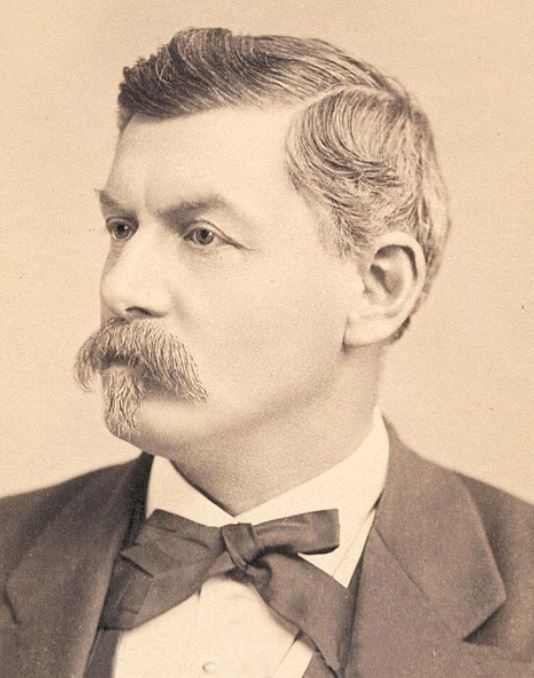
After 1881, George McClellan left public life for good. He settled at his home “Maplewood” in Orange, New Jersey and devoted himself to intellectual pursuits.
McClellan became multilingual. He mastered many modern and classical languages like French, Greek, and Latin. This allowed him to study fields he was interested in. These included archaeology, literature, philosophy, and military history and strategy.
His personal library grew into a vast collection of ancient texts and scholarly works.
The former general developed a new identity as a learned man of letters. He wrote essays and publications on his interests. These included antiquity, art, ancient languages, and military theory.
In his private life, McClellan enjoyed lively discussions with visitors on history, philosophy, and current events. He maintained a scholarly lifestyle, consulting his extensive library and writing essays. His wife Ellen managed the household while McClellan pursued his intellectual interests.
Travel also became a passion. At various different times during his post-military period, George McClellan took extended trips to ancient sites across Europe, Egypt and the Holy Lands. This satisfied his archaeological curiosities.
6. McClellan’s Own Story
For years after the Civil War, McClellan avoided writing about or publicly commenting on his experiences from those Civil War years. He seemed to want to move past the controversies.
However, in the mid-1880s, friends and family urged him to write his memoirs. So McClellan set out to do this.
McClellan’s memoirs were eventually published posthumously in 1887, titled “McClellan’s Own Story.”
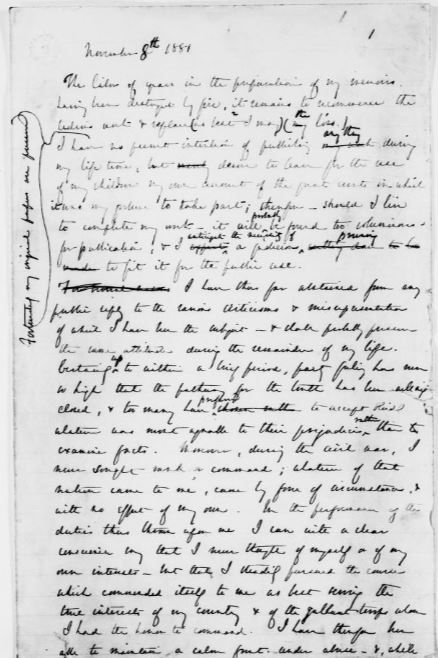
The memoirs provided his perspective as commander of the Army of the Potomac. He recounted in detail the military and political factors that hampered and derailed his efforts to defeat the Confederacy.
The memoirs portrayed McClellan as a capable strategist and devoted patriot.
He would express that his detailed battle plans were undermined by political forces and lack of support from Lincoln’s administration. With his love of preparation, McClellan asserted that figures like Secretary of War Edwin Stanton conspired to sabotage his campaigns for political gain.
Upon its release, “McClellan’s Own Story” reopened heated debates around the general’s complicated Civil War legacy and his removal from command of the Union’s army.
While the memoirs constituted a blistering rebuke against his political adversaries, they also revealed McClellan’s bitterness over how his circumstances had unfolded.
That bitterness represented the tang of a self-confessed brilliant military mind that believed it had been robbed of its ultimate destiny on the battlefield by short-sighted politicians. And indeed, while the establishment may have resented McClellan’s cautious tactics, it was undeniable that his troops loved and respected the young general wholeheartedly.
When McClellan died, more on that below, his unfinished memoirs were inherited by his friend William Prime, who edited them for posthumous publication in 1887.
7. McClellan’s Untimely Death
George B. McClellan died at the age of just 58. He passed away on October 29, 1885 in Orange, New Jersey following a heart attack.
It is not well documented, but there is reason to believe that McClellan’s health had declined in the final years of his life.
On the day he died, McClellan was at home working on his memoirs. He collapsed suddenly while writing at his desk.
His wife Ellen and son George Jr. were by his side when he died. McClellan remained conscious until the very end. His last words were
“I feel easy now.”
George McClellan
McClellan’s death received widespread media coverage. Many former officers who served under him paid tribute.
President Grover Cleveland described McClellan as:
“an able and distinguished soldier.”
President Grover Cleveland
The funeral was held on November 2nd in Trenton, New Jersey. Thousands attended to pay their respects.
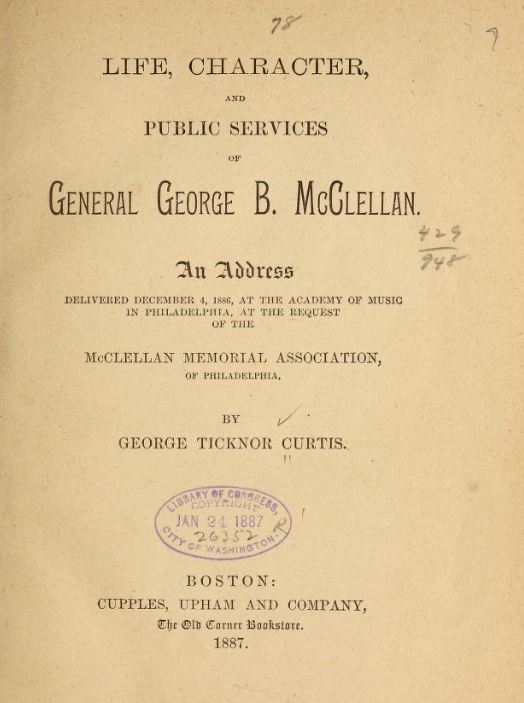
Despite the controversies of his Civil War tenure, McClellan was mourned as a patriot.
McClellan’s unexpected death while working on his memoirs marked an abrupt end. However, his legacy carried on through his writings and life after the military.
Further Reading
If you enjoyed this article, you may be interested to read about other American Civil War events, such as battles in Virginia, Maryland and North Carolina or more general American history.

